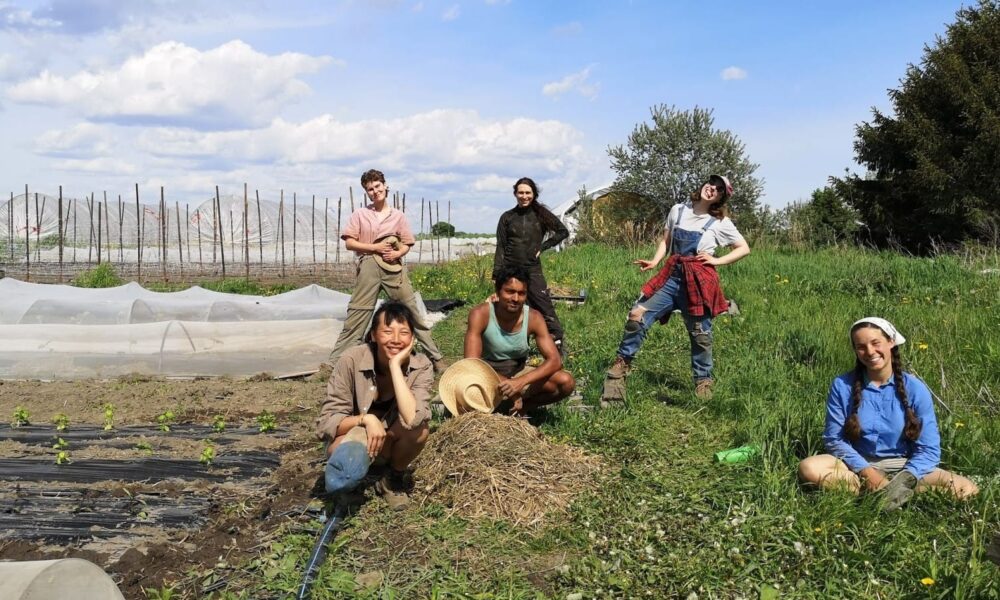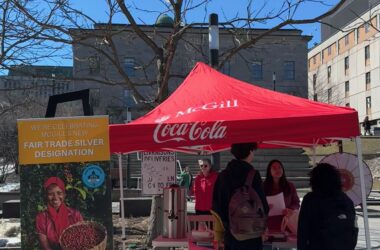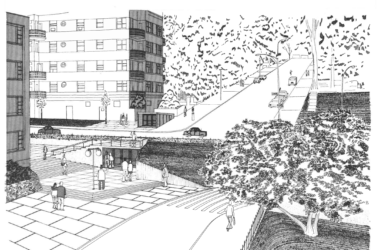Students often stroll past the little pockets of greenery peppering McGill’s campuses without a second glance, but there is more to these urban gardens than meets the eye. The umbrella term “urban garden”—which falls under the terms urban horticulture or urban agriculture—encompasses a variety of different gardening techniques, including container gardening, community gardening, guerilla gardening, and green roofs. Urban gardens benefit their communities by providing green spaces for people to enjoy and by improving the air and soil quality. They can also be used for educational purposes, connecting city-dwellers to food systems that may be remote and inaccessible.
McGill University’s history with urban gardens goes back to the 1960s with the Robertson Herb and Scent Garden, the first cultivated crop garden on campus. For most of their history, the gardens on the downtown campus primarily served a decorative function and were maintained by the McGill Grounds Team. In the last 15 years, however, urban agricultural initiatives have grown rapidly, thanks in part to resources such as the Sustainability Projects Fund (SPF), launched in 2009. The largest of its kind in Canada, valued at over $1 million annually, the fund has helped kickstart over 300 sustainability projects. Today, most of the gardens are maintained by student groups and organizations, such as the McGill Faculty of Education Garden (MFECG), Campus Crops, and the Midnight Kitchen garden.
“The goal of the McGill Faculty of Education Community Garden is for it to be an outdoor learning space [and] a place to experiment and showcase what can be done in a space like this so people know they can reproduce it at home,” said Eva Colleoni, a U4 Environment student and coordinator at the garden. The priority of the MFECG is to provide an educational space for hands-on learning and workshops, rather than a space for the mass production of food.
Macdonald Campus has not been left behind in this surge of agricultural student initiatives. The Macdonald Student-Run Ecological Garden (MSEG) has been operating continuously since they first received SPF funding back in 2010. Their emphasis on organic farming practices and vegetable diversity resemble those at MFECG, but, as a student farm, they put a greater focus on the quantity of food produced.
“A typical day depends on the season, but right now, we are split between harvesting, taking care of the crops we’ve already planted, and planting new ones,” Sam Liptay, a U3 Environment student and a manager at MSEG explained.
The MSEG’s six-person team organizes the growing season so there will be enough produce harvested each week to fill the Community Supported Agriculture (CSA) baskets. Paying a flat rate at the beginning of a season, members sign up for these baskets 8 to 10 weeks at a time. Unlike the oligopoly of large Canadian grocers, such as Provigo, MSEG’s operations run far closer to the local communities that they serve.
The main difficulty for campus gardens is keeping enough consistent student involvement to operate these initiatives, due to the quick turnaround of students and unforeseen circumstances such as the COVID-19 pandemic. For the MFECG, Colleoni hopes that by involving students with community meals and workshops, there will be enough interest to maintain the program for years to come. For Liptay, these difficulties, coupled with the unpredictability of farming, mean getting through each year is a success in itself.
“It’s inspiring to be running a farm with six people under the age of 23 and also […] to show that it’s possible, even though it’s tough, is really cool. Just having a successful, long-running student group that also contributes to the local community through our food and our baskets is an end goal in itself,” he concluded.
To learn more about these urban gardens, check out their Instagram pages.
McGill Faculty of Education Community Garden: @mcgill_education_garden
Macdonald Student-Run Ecological Gardens (MSEG): @macdonaldeducationalgarden
Midnight Kitchen Collective: @midnightkitchencollective
Campus Crops: @campuscrops.mcgill








